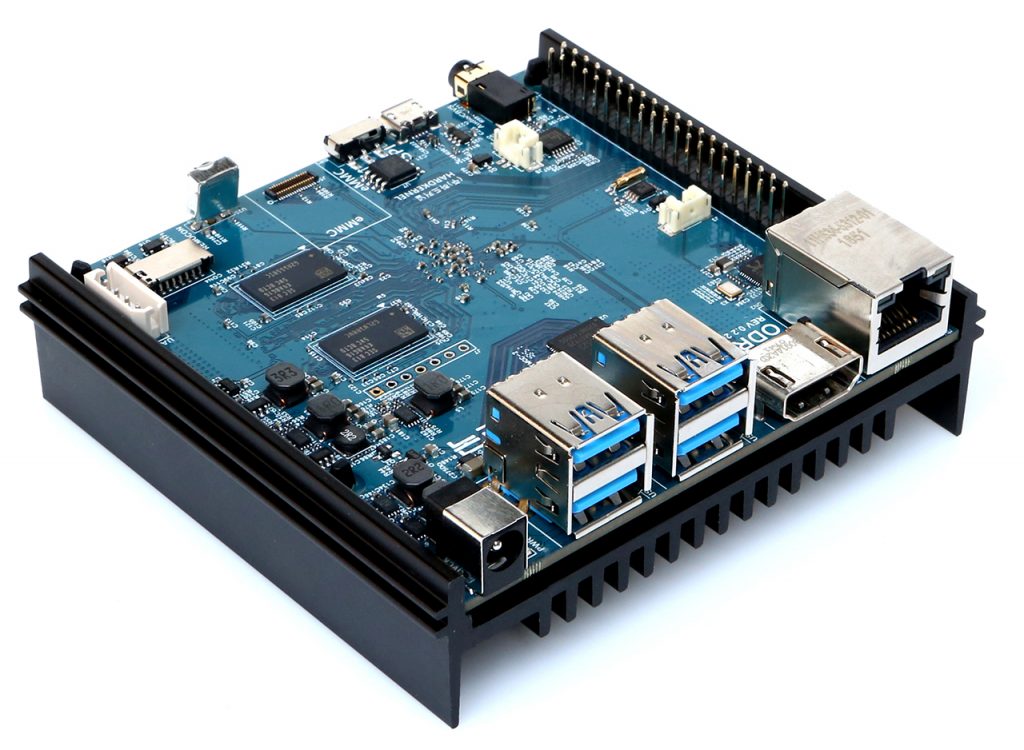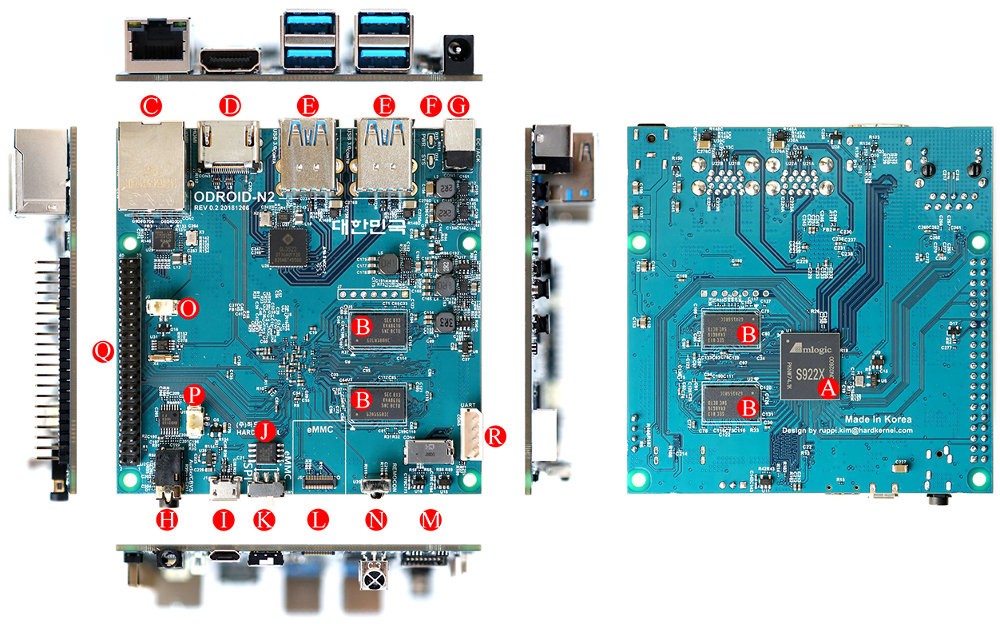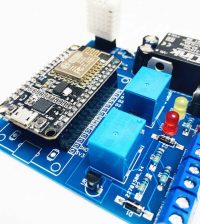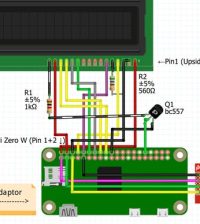- How to Adjust X and Y Axis Scale in Arduino Serial Plotter (No Extra Software Needed)Posted 5 months ago
- Elettronici Entusiasti: Inspiring Makers at Maker Faire Rome 2024Posted 5 months ago
- makeITcircular 2024 content launched – Part of Maker Faire Rome 2024Posted 7 months ago
- Application For Maker Faire Rome 2024: Deadline June 20thPosted 9 months ago
- Building a 3D Digital Clock with ArduinoPosted 1 year ago
- Creating a controller for Minecraft with realistic body movements using ArduinoPosted 1 year ago
- Snowflake with ArduinoPosted 1 year ago
- Holographic Christmas TreePosted 1 year ago
- Segstick: Build Your Own Self-Balancing Vehicle in Just 2 Days with ArduinoPosted 1 year ago
- ZSWatch: An Open-Source Smartwatch Project Based on the Zephyr Operating SystemPosted 1 year ago
Odroid-N2: the Superfast Raspberry Pi Rival

Hardkernel failed to deliver the $100 Rockchip RK3399-based Odroid-N1 developer board last year due to component shortages. But it’s now back with a successor, the Odroid-N2, which is cheaper and performs significantly better in benchmarking tests.
The ace up the $63 board’s sleeve is its performance, courtesy of four 1.8GHz Arm Cortex A73-based processors and two 1.9GHz Arm Cortex A53-based processors, with the SoC able to switch tasks between processors to save energy.
These newer Arm Cortex A73 processors promise better sustained performance, as they are able to run at their 1.8GHz top speed for longer periods without being throttled to reduce temperatures when under heavy load, thanks to being manufactured using a 12nm process technology.
ODROID-N2 SBC specifications:
- SoC – Amlogic S922X hexa-core big.LITTLE processor with 4x Arm Cortex A73 cores @ up to 1.8 GHz, 2x Arm Cortex A53 cores @ 1.9 GHz, Arm Mali-G52 GPU @ 846MHz; 12nm manufacturing process
- System Memory – 2GB or 4GB DDR4 RAM @ 1320 MHz
- Storage – 8MB SPI flash, eMMC flash module socket, micro SD card slot
- Video & Audio Output – HDMI up to 4K @ 75 Hz, AV port (composite video + stereo audio)
- USB – 4x USB 3.0 ports, 1x micro USB 2.0 OTG port
- Expansions – 40-pin GPIO header with 2x I2C, UART, 6x PWM, SPI, S/PDIF, 2x ADC, and GPIOs
- Misc – 2x system LEDs, SPI/eMMC boot select switch, IR receiver, 2-pin header for RTC battery, 2-pin header for optional fan
- Debugging – 1x UART header for serial console
- Power Supply – DC power barrel jack
- Power consumption – Idle: 1.6~1.8 Watt; Heavy load: 5.2~5.3 Watt (stress-ng –cpu 6 –cpu-method matrixprod)
- Dimensions – 90 x 90 mm (TBC)
With a starting price of $63 for 2GB RAM version and $79 for 4GB, the Odroid-N2 won’t be as cheap as the $35 Raspberry Pi, but it’s also intended for a different market that’s willing to pay for some extra memory, more ports, and a faster processor.

















Pingback: Khadas VIM3: a Powerful Raspberry Pi Alternative | Open Electronics